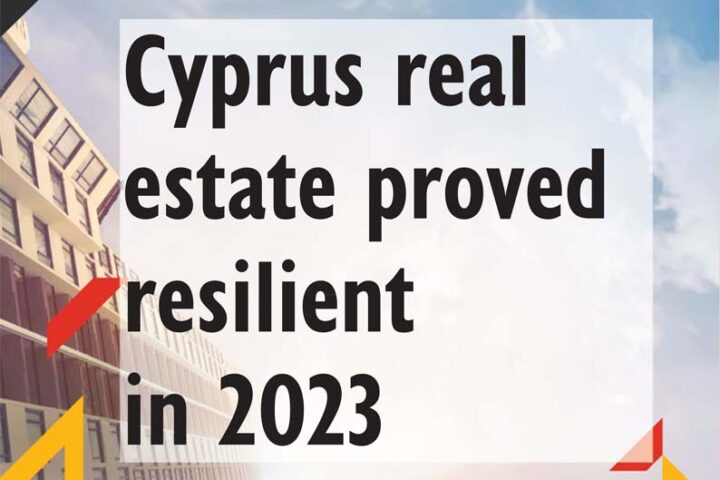The real estate market has three big challenges ahead:
- Political risk due to the war in Ukraine and its impact on the euro and the EU’s institutions
- Increase in residential rents as the population increases due to in-migration and locals postpone buying a home due to higher borrowing costs
- Higher interest rates and returns from alternative investments that are causing a repricing of commercial real estate investments
Let’s focus on repricing commercial real estate investments, as this will repeatedly play out during 2023 and beyond.
A real estate investor assesses a commercial, income-producing property according to three parameters that collectively make up the capitalisation rate of the income generated by the property.
These parameters are the risk-free rate, the risk premium, and the expected annual growth in a property’s capital value.
The risk-free rate is typically the interest rate paid on a 10-year government bond.
The risk premium is an investor’s excess compensation for taking the risk in a commercial real estate deal, typically 2.0%.
The growth in capital values is usually the expected annualised growth rate in property prices over the next 3-5 years.
For example, if the 10-year government bond rate is 1.0%, the risk premium is 2.0%, and the expectation is that capital values will remain broadly flat, then the capitalisation rate equals 3.0%.
A property that generates a rent of €12,000 per annum would be valued by dividing €12,000 by 3.0%, which equates to €400,000, i.e., someone would buy the property for €400,000 and it would generate 3.0% on their invested amount.
This was roughly the case in Cyprus up to February (the 10-year government bond yield was 0.6% in January 2022).
Cyprus’ 10-year government bond rate is now 4.0%, and the risk premium of investing in real estate is now higher due to increased political risk globally and is probably closer to 2.5%.
Therefore, the expected growth in capital values is negative, i.e., the expectation is that they will decrease over the medium term (let’s assume that this is only by 1.0% per annum).
Thus, 4.0% plus 2.5% minus -1.0% means that the capitalisation rate is now closer to 7.5%.
The same property that generates €12,000 per annum is now valued at €160,000, i.e., a decrease of 60%.
As the population of Cyprus is increasing due to immigration, and commercial rents continue to adjust to a growing economy, let’s assume that the property’s rent is expected to increase by 20% to €14,400.
At that rent, using the capitalisation rate of 7.5%, we would have a value of €192,000, i.e., a decrease of 52% compared to the original €400,000.
Madness? Crazy? It will never happen!
The STOXX Europe 600, a share index of 600 European stocks among 17 European countries, is down 14% year-on-year. Its sub-component, the STOOX Europe 600 real estate, is down 41% year-on-year.
The stock market is “telling us” that European stocks are worth 14% less now than they did a year ago, with real estate stocks worth 41% less than they did a year ago.
As the stock market tends to work more efficiently than the real estate market, it’s logical to expect that significant repricing will likely take place over the next couple of years as the increase in interest rates, heightened political risks, and higher returns from alternative investments are priced into real estate assets.
The repricing of real estate across the continent will significantly affect investors’ portfolios, alternative finance providers, and banks.
Investors should examine potential transactions from a financial perspective and consider the macroeconomic drivers that affect a specific area or property.
Whilst the hope is that any repricing will be smoothed-out as governments absorb a significant part of the increased energy cost, the bond market has set the foundations for a wide-spread repricing across multiple asset classes.
In this turbulent environment, risk-takers will have multiple opportunities to capitalise upon, but the capital markets remain fluid.
By Pavlos Loizou, CEO Ask Wire










